India surrogate mothers talk of pain of giving up baby
- Published
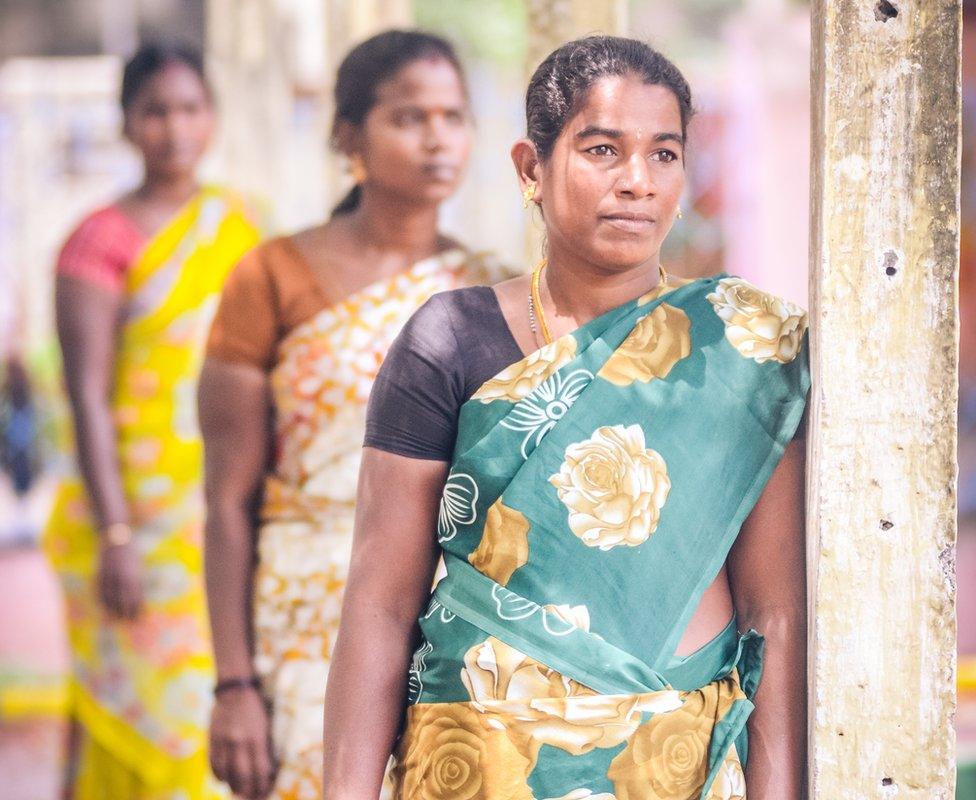
Most surrogate mothers are women from poor families
India is known as the "surrogacy hub" of the world where infertile couples, many from across the globe, head to rent a womb. In recent years, the southern city of Chennai has emerged as a major centre with more than a dozen hospitals carrying out the procedure and more than 150 surrogates.
Most surrogate mothers are women from poor families who take up the assignment for money. It's generally believed that the transaction is purely commercial, but three surrogate mothers tell the BBC about the emotional bonds they developed with the babies they carried in their wombs for nine months and the pain they felt once the umbilical cord was snapped.

S Sumathi, 38, mother of four
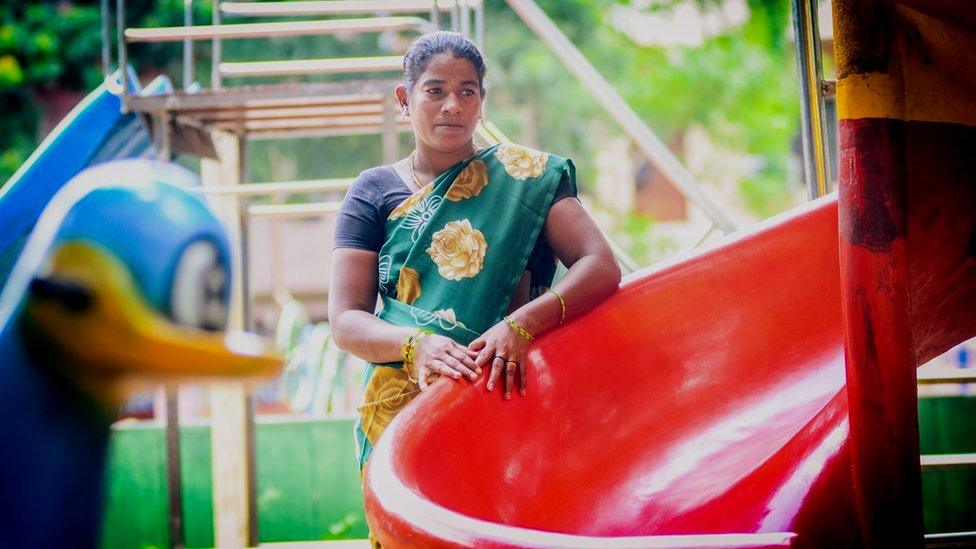
I live in a slum in Chennai's Vyasarpadi area and I come from a very poor family. My husband is an auto-rickshaw driver who earns about 8,000 rupees ($120;£92) a month. I work in a factory that makes leather bags. I earn 6,000 rupees ($90; £69).
Seven years ago, my family was struggling, we had borrowed 100,000 rupees from people, mostly to pay the fee of our school-going children, and the debts had to be repaid.
One day, I met a man who worked as an agent for a surrogacy clinic. He told me that I could earn 200,000 rupees being a surrogate mother.
I knew two other women in my neighbourhood who had been surrogate mothers so I agreed.
I thought, I have four children, and now I can help someone who cannot have any. I was thinking how horrible it would be if my daughter couldn't bear children. I believe everyone should have children and I wanted to help.
I never met the real parents and have no idea who they are. I was still under sedation when they removed the baby. I never set eyes on it.
I have no idea whether it's white or black, whether it's Indian or foreigner, I don't even know whether it's a boy or a girl!
When I gained consciousness, my first words to my husband were, 'Did you see the baby? Is it a boy or a girl?'
He said he hadn't seen it. I asked my doctor, but she didn't answer my question.
'You are a surrogate mother, you shouldn't ask these questions,' she said.
But I want to know about the baby. I want to know where he or she is and what it is studying.
For three months after giving birth, I spent sleepless nights, I would get headaches thinking about the baby and I had to take medicines to calm down.
Every year, on 4 November, the day the baby was born, our family celebrates its birthday. I do all the rituals that I do for my other children.
I fast in the morning, I cook payasam [rice pudding] and share it with my family and neighbours, and I visit the temple to pray for the baby's well-being and long life.
I've always wondered if the baby is like any of my other children. I really do miss the baby and would give anything to see it once.
I know it's not my baby after all, but I know that if I'd seen the baby, I wouldn't have given it away.
I hope the baby is happy and fine wherever it is.
We talk a lot about it, we call it Paapa or Kuzanthai (Tamil words for baby or child) and at times, my family thinks maybe it would have been happier with us.
But then, we are a poor family and in difficult times, we think that perhaps the baby's better off in a wealthier family.

Anandi Chelappan, 34, mother of two
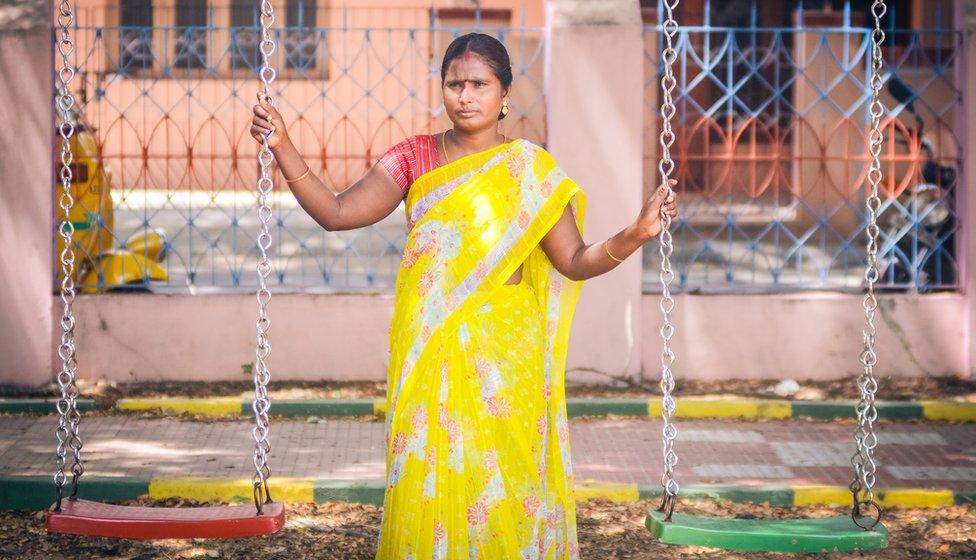
I work in a shop where I earn 150 rupees a day. My husband works as a painter, doing paint jobs on people's homes at the daily rate of 500 rupees. I have two children - a boy, 11, and a girl, 10.
Seven years ago we were faced with financial ruin. My husband was unwell for a while and we had borrowed 150,000 from friends, relatives and neighbours, mostly to pay our rent.
When I proposed to my husband that I could make 200,000 rupees for surrogacy, he was upset, he thought I was going to do something immoral. But then when the procedure was explained to him, he understood it and agreed.
While I was in the hostel, my family was allowed to visit only once a month and that was very hard for me.
I was warned that whatever happened, I couldn't go home, but then thankfully nothing untoward happened which required me to visit them.
My son was only four at the time and he asked me if I was going to have a baby. I told him that I was ill and that's why my stomach was swollen and I had to be admitted to hospital for treatment.
My son bought my story, but if it was my daughter she would have asked me lots of questions. She is very inquisitive, but thank god, she was only three then and too young to understand.
I never saw the baby after it was born. I told the doctor that I would like to see it, at least once. But she said, 'No, it will make you feel guilty.'
For the first month, I cried a lot but my husband kept reminding me that 'it's not our baby, it belongs to others, we did this for money'.
I understand the child belongs to its parents and I was only renting out my womb, but since I carried it for nine months, it would be nice to get to know the parents. I don't want to interact with the baby, but I just want to see it from a distance. But we no longer speak about the baby at home.
With the money I earned, we managed to pay off all our debts and rented a home on a long-term lease, but the lease runs out next year and I'm thinking about being a surrogate mother for the second time.
Of course, my children are older now and I can't fool them any more. So I'll tell them it's our child.
What will happen when the baby is born and taken away? I will cross that bridge when I come to it.

Jothi Lakshmi, 30, mother of three boys, 12, 10 and 7 years
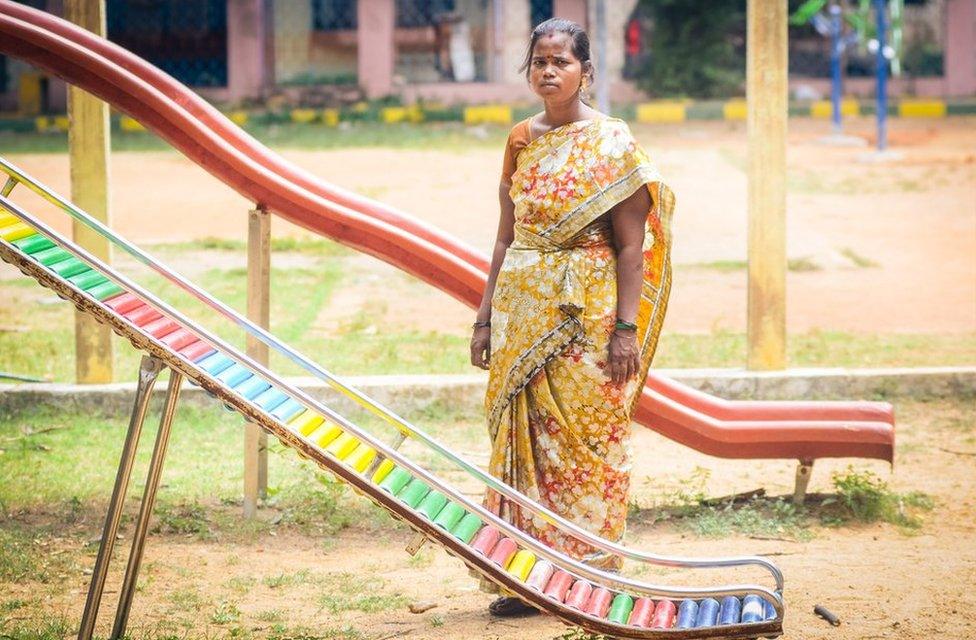
I work in a factory and earn 3,500 rupees a month. My husband is a rickshaw driver and he makes 5,000 rupees a month.
In 2008, my husband had left home after a fight and it became impossible for me to even feed my children.
In the past, I had donated an egg at a fertility clinic so I decided to do it again to make some money, but the doctor there asked me to be a surrogate.
My mother and mother-in-law were unconvinced, they didn't speak to me during my pregnancy.
I never laid eyes on the baby and I think maybe it was for the best because if I had seen it, I would have felt very guilty giving it up.
But it was hard, I had felt the baby move in my belly, I had become attached to it, and I couldn't see it. It just disappeared.
For about two-three years, I felt very bad and I lost a lot of weight.
But now I don't want to see it. At home, we don't talk about it. I even discourage my husband from talking about it because I know it belongs to someone else.
I have made peace with myself.

- Published22 November 2015
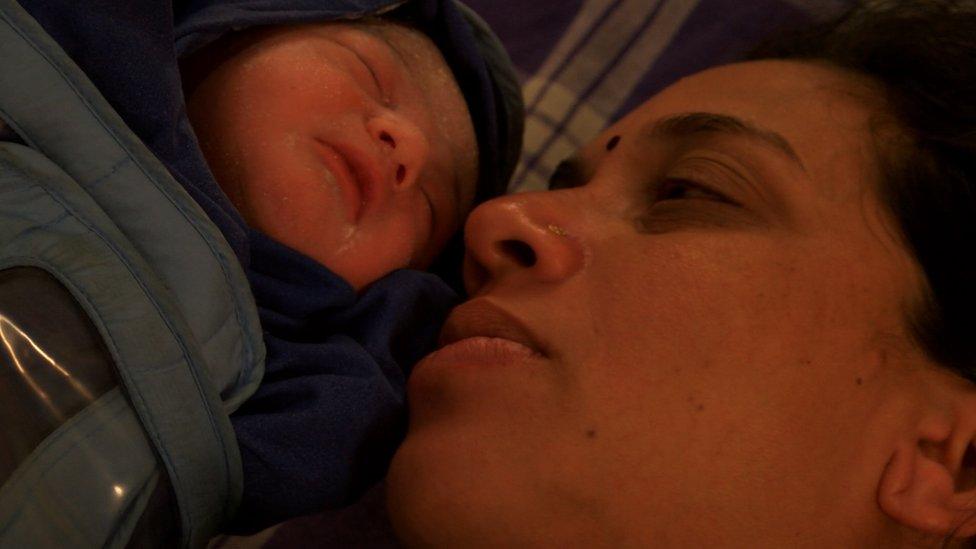
- Published28 October 2015
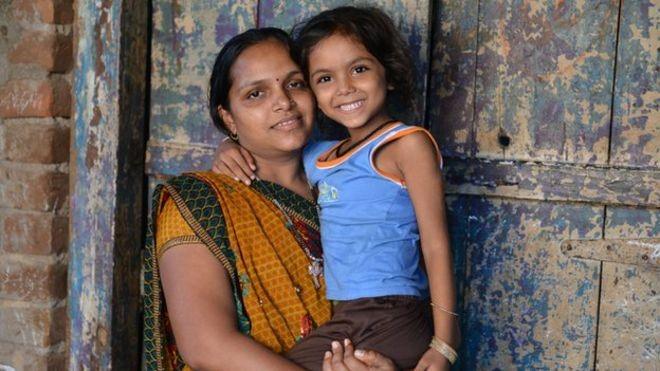
- Published2 June 2015
